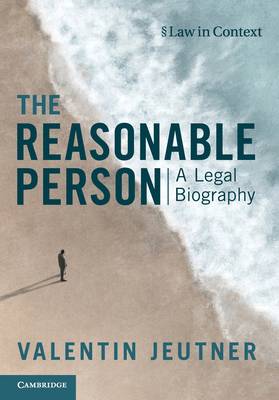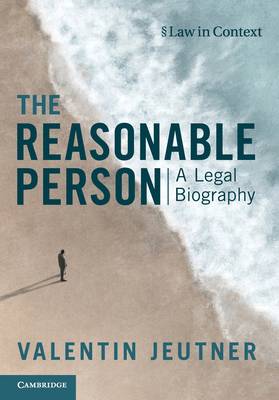
Bedankt voor het vertrouwen het afgelopen jaar! Om jou te bedanken bieden we GRATIS verzending (in België) aan op alles gedurende de hele maand januari.
- Afhalen na 1 uur in een winkel met voorraad
- In januari gratis thuislevering in België
- Ruim aanbod met 7 miljoen producten
Bedankt voor het vertrouwen het afgelopen jaar! Om jou te bedanken bieden we GRATIS verzending (in België) aan op alles gedurende de hele maand januari.
- Afhalen na 1 uur in een winkel met voorraad
- In januari gratis thuislevering in België
- Ruim aanbod met 7 miljoen producten
Zoeken
€ 57,95
+ 115 punten
Omschrijving
Jeutner argues that the reasonable person is, at heart, an empathetic perspective-taking device, by tracing the standard of the reasonable person across time, legal fields and countries. Beginning with a review of imaginary legal figures in the legal systems of ancient Egypt, Greece, and Rome, the book explains why the common law's reasonable person emerged amidst the British industrialisation under the influence of Scottish Enlightenment thinking. Following the figure into colonial courts, onto battlefields and into self-driving cars, the book contends that the reasonable person invites judges, jury-members, and lawyers to take another person's perspective when assessing their own or another person's conduct. The perspective of another is taken by means of empathy, by feeling what others might feel in a particular situation. Thus construed, the figure of the reasonable person can help us make more accurate judgments in a diverse world.
Specificaties
Betrokkenen
- Auteur(s):
- Uitgeverij:
Inhoud
- Aantal bladzijden:
- 216
- Taal:
- Engels
- Reeks:
Eigenschappen
- Productcode (EAN):
- 9781009445641
- Verschijningsdatum:
- 16/10/2025
- Uitvoering:
- Paperback
- Formaat:
- Trade paperback (VS)
- Afmetingen:
- 170 mm x 244 mm
- Gewicht:
- 349 g

Alleen bij Standaard Boekhandel
+ 115 punten op je klantenkaart van Standaard Boekhandel
Beoordelingen
We publiceren alleen reviews die voldoen aan de voorwaarden voor reviews. Bekijk onze voorwaarden voor reviews.









